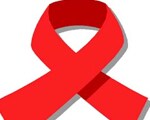Using assisted reproductive technology, pregnancy can be safely achieved in HIV negative wives with HIV positive husbands.

Using assisted reproductive technology, pregnancy can be safely achieved in HIV negative wives with HIV positive husbands.
For couples having trouble conceiving, in vitro fertilization (IVF) is often undertaken - a process in which the woman's egg is fertilized with the man's sperm in a laboratory dish, so that conception is performed in vitro, or outside the body. This may include sperm washing and intracytoplasmic sperm injection (ICSI), a process in which the sperm is treated to remove all HIV and then directly injected into a fertilised egg.
Although sperm washing techniques for assisting HIV serodiscordant couples (one partner is HIV positive) wishing to have children have been utilised for almost 20 years, the US healthcare system has been slow to embrace the technology.
The study included 181 American couples in whom the men were HIV-infected and the women were not. The women underwent 355 fresh IVF-ICSI cycles and 65 frozen-embryo transfer cycles. Sixteen percent of stimulations were cancelled due to poor ovarian response.
On an average, 15 eggs were retrieved from the ovaries, resulting in 12.1 mature eggs suitable for ICSI, yielding 9 embryos per couple. The overall clinical pregnancy rate/embryo transfer was 45 percent and the ongoing/delivery pregnancy rate/embryo transfer was 37 percent.
Multiple pregnancy was the most frequent complication (41 percent) and high-order multiple birth was seen in 5 percent. Preterm delivery was also common (43 percent). However, there was no evidence of maternal or neonatal HIV transmission and no deaths occurred.
The above findings indicate IVF-ICSI to be a quick and safe means for HIV-serodiscordant couples to achieve pregnancy with minimal risk of viral infection.
DoctorNDTV is the one stop site for all your health needs providing the most credible health information, health news and tips with expert advice on healthy living, diet plans, informative videos etc. You can get the most relevant and accurate info you need about health problems like diabetes, cancer, pregnancy, HIV and AIDS, weight loss and many other lifestyle diseases. We have a panel of over 350 experts who help us develop content by giving their valuable inputs and bringing to us the latest in the world of healthcare.












